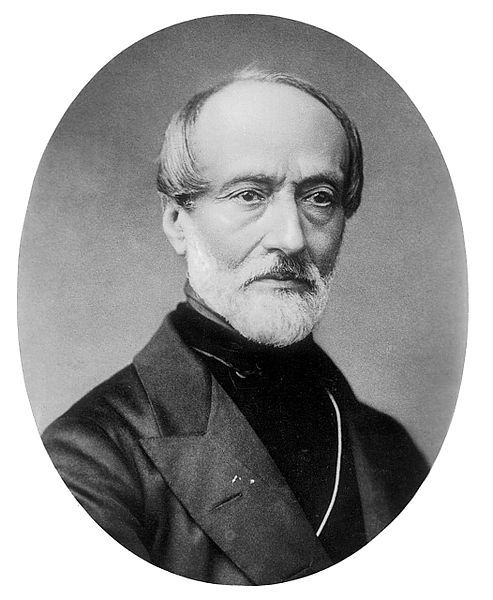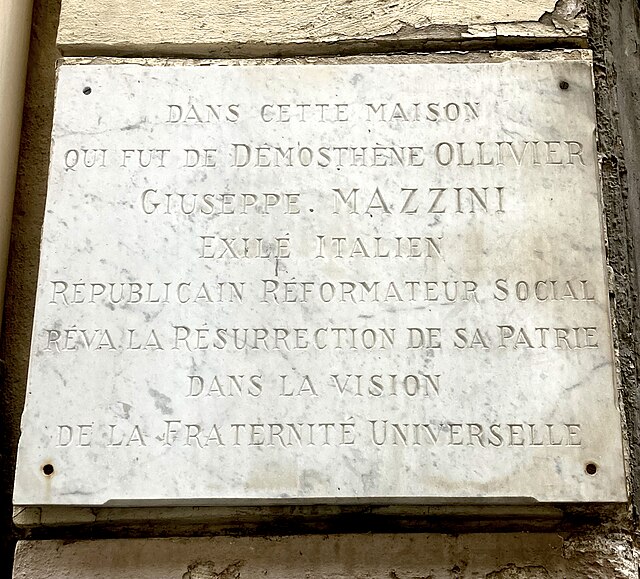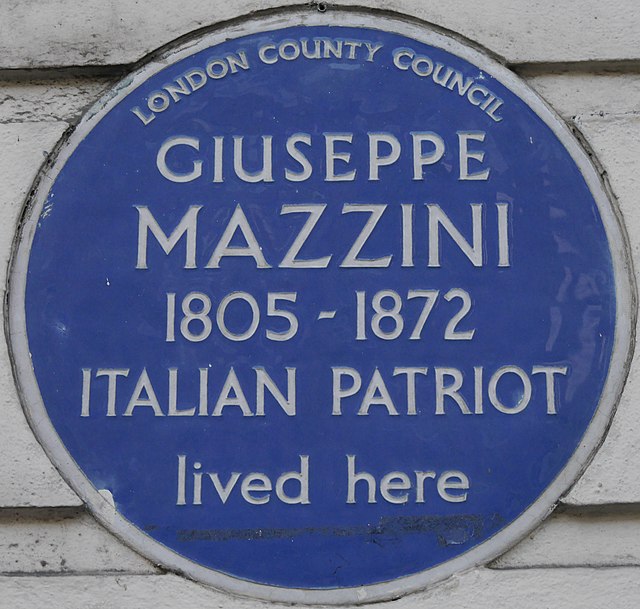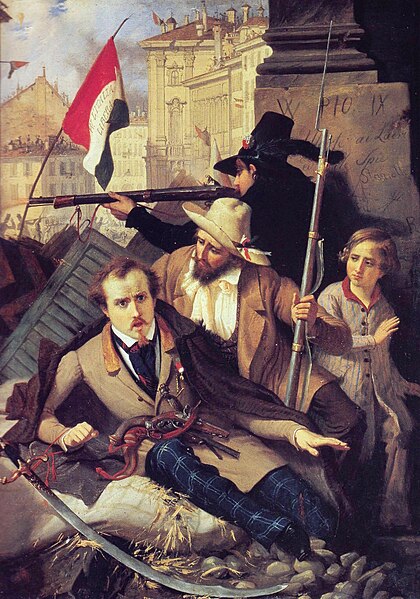Giuseppe Mazzini was an Italian politician, journalist, and activist for the unification of Italy (Risorgimento) and spearhead of the Italian revolutionary movement. His efforts helped bring about the independent and unified Italy in place of the several separate states, many dominated by foreign powers, that existed until the 19th century. An Italian nationalist in the historical radical tradition and a proponent of a republicanism of social-democratic inspiration, Mazzini helped define the modern European movement for popular democracy in a republican state.
Mazzini in 1860
Mazzini's house in Genoa, now seat of the Museum of Risorgimento and of the Mazzinian Institute
Mazzini in Marseilles
Blue plaque, 183 North Gower Street, London
The unification of Italy, also known as the Risorgimento, was the 19th-century political and social movement that resulted in 1861 in the consolidation of various states of the Italian Peninsula and its outlying isles into a single state, the Kingdom of Italy. Inspired by the rebellions in the 1820s and 1830s against the outcome of the Congress of Vienna, the unification process was precipitated by the Revolutions of 1848, and reached completion in 1871 after the capture of Rome and its designation as the capital of the Kingdom of Italy.
Five Days of Milan, 18–22 March 1848
Giuseppe Mazzini, highly influential leader of the Italian revolutionary movement
The first meeting between Garibaldi and Mazzini at the headquarters of Young Italy in 1833.
Guglielmo Pepe







